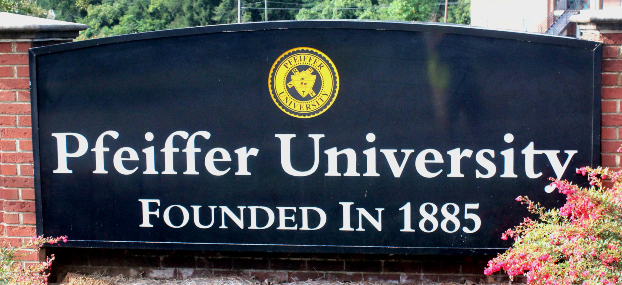Feds award Monarch $1.6M for clinic expansion
Published 6:51 pm Friday, September 28, 2018
Monarch of Stanly County has been awarded a $1.6 million federal grant to help combat mental illness and drug addiction. If successful, the award could nearly double next year.
The Department of Health and Human Services’ Substance Abuse and Mental Health Services Administration (SAMHSA) awarded the grant so Monarch can expand its Certified Community Behavioral Health Clinic (CCBHC). In exchange, Monarch will use the grant to focus on mental health and substance use disorders in Stanly County. Another $1.5 million could be awarded in year two, or a total of $3.1 million, if Monarch shows its expanded services yielded results.
Twenty-three organizations applied for the grant. Only eight received grant funds.
“Monarch is honored to receive this significant grant allowing our dedicated staff to expand mental health and addiction services to the Stanly County community,” said Peggy Terhune, Monarch president and chief executive officer. “We appreciate the confidence placed in us by the federal government to continue providing valuable assistance to individuals and families who will benefit from this expansion of services.”
Not only were Monarch officials grateful, but they were surprised, too. After checking the SAMHSA website for grant awards, they initially thought they had been denied.
“We put our heart and soul in this application,” Terhune said, adding that staff members worked tirelessly at nights, weekends and even spent vacation time to get the application completed.
“We hoped we’d get it, but we had no idea,” she added.
“We had all the data. We were able to explain why Stanly County needs this,” Terhune continued.
This marked Monarch’s second effort at applying for the grant. They were denied the first time. Terhune concluded the state’s lack of Medicaid expansion might be working against Monarch’s application.
Stanly’s continued problems with mental illness and drug addiction, illustrated by data, likely contributed to the grant. Opioid addiction and the suicide rate have been consistently problematic for rural Stanly County.
“Statistics indicate that Monarch serves the most severely impacted communities across North Carolina, many of which are rural and where support is critical, like Stanly County,” Terhune said. “Recent research suggests that mental health and substance use disorders are likely to worsen in the next few years, so the grant comes at a pivotal time to immediately address those needs.”
Over the next two years Monarch estimates it will serve more than 2,000 adults and children with serious mental illness, emotional disturbance, long-term chronic addiction, mild or moderate mental illness and substance use disorders, as well as complex health conditions. Monarch’s newly established CCBHC will be at the current behavioral health outpatient office at 350 Pee Dee Ave. in Albemarle.
The CCBHC model is part of the National Excellence in Mental Health and Addiction Treatment Expansion Act. This legislation expands the number of CCBHCs to increase access to community mental health and substance use treatment services while improving Medicaid reimbursement.
CCBHC’s key goals include mental health and addiction treatment access; opioid crisis service expansion; primary care health screenings; expanded behavioral health support for veterans; and collaboration among community care partners.
U.S. Rep. Richard Hudson, R-08, who has spearheaded legislation to fight opioid addiction, applauded the award to Monarch.
“This is great news for the well-being of individuals and families across North Carolina and especially here in Stanly County,” Hudson said. “This grant will expand Monarch’s ability to provide top-notch patient care, increase access to mental health services, and enable more people to get addiction treatment and help they need.”
Monarch’s CCBHC plans to include the following services at the Stanly County location:
• Crisis services to encompass a telephone hotline, in-person crisis response and same-day appointment access;
• Comprehensive clinical assessments addressing both physical and behavioral health needs;
• Coordination of services with primary care physicians;
• Person and family centered treatment plans;
• Introduction of Medication Assisted Treatment (MAT) model as an outpatient, office-based opioid treatment program; and
• Tailored care for active duty military and veterans to ensure they receive the unique health support essential to their treatment.
Contact Ritchie Starnes at 704-754-5076 or ritchie.starnes@stanlynewspress.com.



